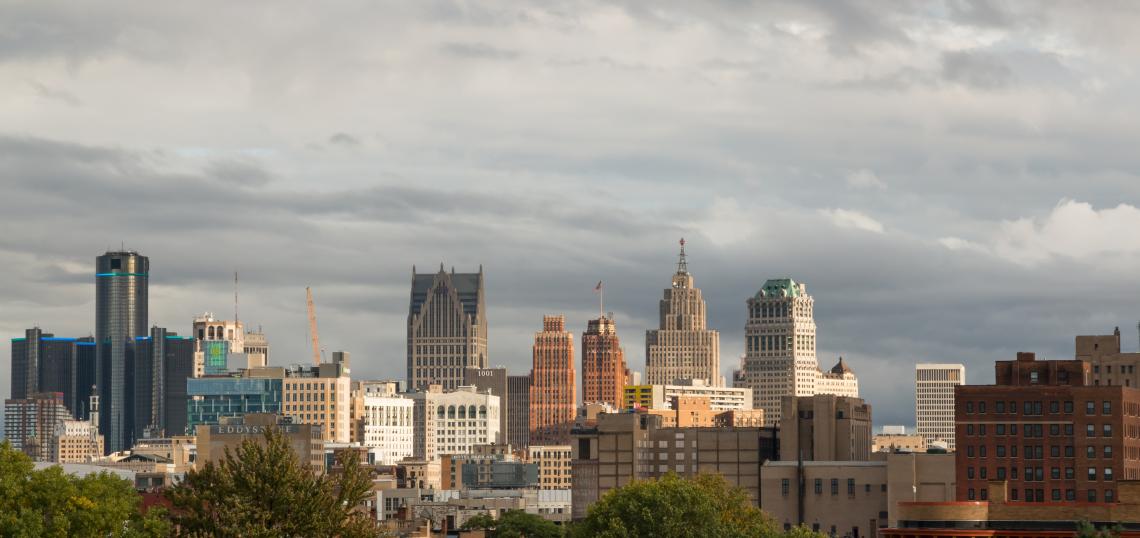Mayor Mike Duggan announced a new tax plan for the city today that would address an issue that's been plaguing the city for decades and could eventually change the landscape of the city.
Owners of vacant land or vacant buildings in Detroit are hardly charged anything in taxes, which is a big reason why Detroit still has so much vacant land and large, vacant buildings. There are many speculators who hold land or property waiting for the day a developer might buy it. In the new system, the Land Value Tax Plan, the city would increase the tax millage on land and reduce the millage on structures.
If passed, the plan would be rolled out in phases over three years.
In a presentation at the Mackinac Policy Conference, Duggan said they would triple the taxes on land while decreasing taxes on buildings by 30%.
This would have a huge impact on development, which has been anything but easy in this city. In order to get capital for a project, a developer in another city, say someplace in the suburbs, would go to 2-3 lenders. Duggan noted how a couple recent developments in his presentation built their capital stacks.
- The recently-opened Freelon at Sugar Hill, led by Develop Detroit and Sonya Mays, has 68 mixed-income units and cost $38 million. The project had 12 different lenders.
- The recently-finished Dreamtroit project in NW Goldberg will have 76 mixed-income units and cost $30 million. It had 15 different lenders (developer Matt Naimi tattooed this on his arm).
Duggan gave a statistic that illustrates the landscape of a major American city. Detroit has:
- 53 grocery stores
- 16 hardware stores
- 2 movie theaters
- 452 auto/scrapyards
The city states that the median tax bill for scrap yards would increase by 100%.
This plan would affect owners of surface lots we see all over downtown Detroit, vacant buildings within residential neighborhoods, abandoned factories, and vacant lots often used as dumping grounds throughout the city.
The city says that 97% of homeowners would see a tax cut, while the other 3% wouldn't see a change. Owners of a $50,000 house would see a tax savings of $450, while $100,000 house would be $900 in savings.
The city also states that multifamily developments would see a cost savings of 20%.
A coalition of community organizations are in favor of the plan, which would help homeowners, developers, and small businesses.
“Small businesses are the backbone of our communities and supporting them means investing in the growth and prosperity of our neighborhoods,” said Charity Dean, president and CEO of the Metro Detroit Black Business Alliance. “When we prioritize small businesses, we create jobs, foster innovation and build a thriving economy that benefits everyone. Mayor Duggan’s Land Value Tax Plan recognizes this by providing relief to those businesses.”
“This plan is built on a foundation of sound public policy, incentivizing investments in business and housing developments and making it more costly to sit on blighted land. Most importantly, this will lead to more equitable growth in our neighborhoods,” said David Blaszkiewicz, CEO of Invest Detroit, a mission-driven lender and partner committed to equitable growth and development in Detroit.
The city will start engaging with land and property owners immediately. This would have to go to the state legislature in the fall, and the voters in early 2024. The plan would be phased in over the course of three years, starting in the summer of 2025.
Read more here.






